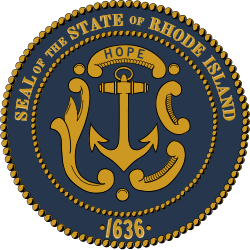| |||||||||||||||||
| |||||||||||||||||
Case: 40–50% 50–60% 60–70% 70–80% 80–90% 90–100% Green: 50–60% 60–70% | |||||||||||||||||
| |||||||||||||||||
| Elections in Rhode Island |
|---|
 |
The 1930 Rhode Island gubernatorial election was held on November 4, 1930. Incumbent Republican Norman S. Case defeated Democratic nominee Theodore F. Green with 50.53% of the vote.



